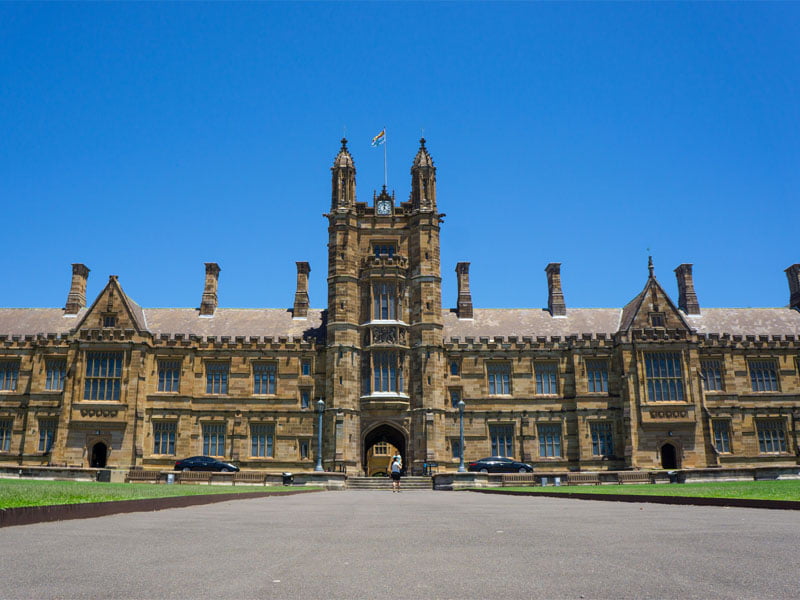The great English philosopher and satirist John Alexander Smith once addressed the entering class at Oxford with the advice that the sole purpose of an education is to be able to “detect when a man is talking rot.”
A century later we can detect that federal Education Minister Dan Tehan is talking rot when he boasts his planned overhaul of the university education sector will incentivise a future cohort of “job ready” graduates in high growth industry sectors
As part of the overhaul in tertiary course pricing and fee structure announced last week, nursing, psychology, English, languages, teaching, agriculture, maths, science, health, environmental science and architecture will be a relative bargain to study compared to the humanities, law and commerce.
Humanities course fees will more than double, putting them alongside law and commerce in the highest price band of $14,500 a year.

Much of the media have headlined the policy change as Australia’s “pivot to STEM” – a shift that many high-profile technology and science leaders in Australia and elsewhere have been lobbying for in recent years.
In his speech to the National Press Club, the minister said the changes are designed to incentivise future students to “make more job-relevant choices, that lead to more job-ready graduates, by reducing the student contribution in areas of expected employment growth and demand.”
But for many reasons, some discussed below, it won’t be anything like that. “Job Ready” rhetoric aside, the policy is a cynical price-signalling move by a federal government wanting to cut commonwealth funding to the tertiary education sector.
And even without the COVID-19 pandemic, the new policy is a perverse incentive out of step with skills development needs in a world of both increasing automation and accelerating complexity in systems and societies.
In an upcoming book, Calling Bullshit: The Art of Scepticism in a Data-driven World by University of Washington scientists Carl Bergstrom and Jevin West, the authors deliver a scathing assessment of the state of STEM education and its decreasing ability to foster critical thinking and complex reasoning skills.
“For all its successes, we feel that higher education in STEM disciplines—science, technology, engineering, and medicine—has dropped the ball … We generally do a good job teaching mechanics: students learn how to manipulate matrices, transfect cells, run genomic scans, and implement machine learning algorithms. But this focus on facts and skills comes at the expense of training and practice in the art of critical thinking.”
Since 2017, Bergstrom, an evolutionary biologist and West, a data scientist, have been teaching the hugely popular Calling Bullshit course within the University of Washington’s department of biology.
Far from disincentivising humanities education, the professors proffer that STEM education would be well served by a good dose of humanities instruction.
“In the humanities and the social sciences, students are taught to smash conflicting ideas up against one another and grapple with discordant arguments. In STEM fields students seldom are given paradoxes that they need to resolve, conflicting forms of evidence that they must reconcile, or fallacious claims that they need to critique.”
Mr Tehan should read this book, for he has designed a policy that has many paradoxes and is likely to deliver many negative unintended consequences for graduates, employers, for the quality of university education – including STEM ed – and for the competitiveness of the Australian economy.
The policy signals to our young school leavers (and their parents) that Humanities and social sciences course are not job relevant and that cut-price courses in nursing; teaching, maths and engineering will lure students who were not previously leaning that way.
But as some insiders with deep understanding of both education and the complex way it is funded (combination of student and Commonwealth funding) have pointed out, the reality is that Engineering and science are actually having their total funding (student contribution and government contribution) cut.
“Universities will be strongly incentivised to go after higher fee paying humanities students, and in STEM disciplines will be forced to go for bigger class sizes, increase the move to non-individualised teaching strategies, and cut costs for labs and practicals in science courses.”
Moreover, the Quality Indicators for Learning and Teaching (QUILT) website which helps compare study experience & employment data from Australian higher education institutions show that humanities graduates are comparably employed with STEM graduates, both in employment rates and remuneration and are among the most satisfied. World Economic Forum data on education and careers says something similar.
The future – and the jobs in it – it always uncertain and no more than in this present and post Covid-19 pandemic world. Our youth will need technical and critical thinking skills in droves to navigate through it.
I am reminded of a letter Albert Einstein wrote in 1915 to his then 11 year old son, Hans Albert, who went on to become a formidable scientist in his own right.
“I am very pleased that you find joy with the piano. This and carpentry are in my opinion for your age the best pursuits, better even than school … Mainly play the things on the piano which please you, even if the teacher does not assign those. That is the way to learn the most, that when you are doing something with such enjoyment that you don’t notice that the time passes. I am sometimes so wrapped up in my work that I forget about the noon meal. Also play ringtoss with Tete.” (Hans’ brother).
Timelessly relevant advice which our education minister should well heed.
Do you know more? Contact James Riley via Email.


Calling Bullshit clearly is a skill that needs to be practiced more widely in society. Sandy has rightly identified two parts of the rot in Tehan’s announcement – firstly that the way he is implementing the ‘incentive’ actually creates the reverse effect on the students and secondly that humanities graduates are less employable.
Sandy could have added much more. The first is the simple question of the economics of why Government should support education at all. The simple theory taught in economics 101 is that the value to the student of the education in net lifetime earnings is less than the value to society. In a post-industrial world where there is more employment in services (including entertainment) than in manufacturing or primary industry, in economic terms these are critical to the economy. At least have some glimmer of an analysis here.
The second is the whole concept of ‘job-ready’ graduates that everyone seems to cry out for. ‘Job ready’ doctors, nurses and allied health professionals who have all done pracs as part of their degrees are mostly required to enter their professions in what are ‘traineeship’ positions with limitations on their ability to make decisions. I have heard it said in telecommunications that an engineer learns more in their first year on the job than they did in their degree — but they can’t learn it without the degree. Rather than pander to business managers and lobbyists who have grabbed for the excuse of graduates not being job ready to cover for the multitude of their own inadequacies (Australia generally being regarded as having some of the worst managers in the world) Government needs to sit them down and explain to them their own responsibilities for human resource management. Incentivise them if we must (Keating tried such a scheme), and these could include wage subsidies payable to employers in the second, third and fourth year of employment of staff that they employed when the employee was in their first year out from University or any number of other constructions. But do something.
Finally there is the question of what – exactly – the Minister is covering in the rubric ‘humanities.’ The Australian College of Learned Academies (https://acola.org/about-us/member-academies/) has four member academies (Humanities, Science, Social Science and Technology & Engineering) and one associate member (Medicine and Health Sciences). The disciplines of history and philosophy that the Minister referred to in his speech fall into both the Humanities and the Social Sciences Academy. In short the Minister has told us nothing of what he thinks of the social sciences as a whole except for some named (economics, psychology, history, philosophy) but what of sociology, demography and statistics?
Has any journalist asked Tehan why he seems to have chosen to study the worthless topics that made up his BA (whatever they were)?
BA(Hons) (University of Melbourne).
MForAffTde (Monash University).
MIntRel (Kent University, Canterbury, UK).